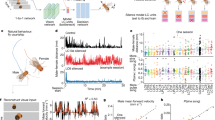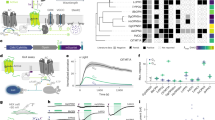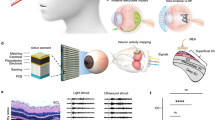Abstract
IT has been shown by Witmaack and more recently confirmed by Kaida1, that following division of the VIII nerve in the cat central to the peripheral cochlear and vestibular ganglia, the ramus cochlearis fails to conform with the well-known Wallerian law in that the nerve elements including the spiral ganglion distal to the point of section undergo degeneration. In the following experiment, use has been made of this fact to adduce evidence bearing upon the problem of origin of the potential changes generated within the intact mammalian cochlea, in response and of a frequency corresponding to physiologically applied sound waves (Wever and Bray phenomenon).
This is a preview of subscription content, access via your institution
Access options
Subscribe to this journal
Receive 51 print issues and online access
$199.00 per year
only $3.90 per issue
Buy this article
- Purchase on Springer Link
- Instant access to full article PDF
Prices may be subject to local taxes which are calculated during checkout
Similar content being viewed by others
References
Kaida, Y., Jap. J. Med. Sci., 12, 1, No. 2, 237; 1931.
Author information
Authors and Affiliations
Rights and permissions
About this article
Cite this article
HALLPIKE, C. Origin of the Wever and Bray Phenomenon. Nature 134, 419–420 (1934). https://doi.org/10.1038/134419b0
Issue Date:
DOI: https://doi.org/10.1038/134419b0
Comments
By submitting a comment you agree to abide by our Terms and Community Guidelines. If you find something abusive or that does not comply with our terms or guidelines please flag it as inappropriate.



